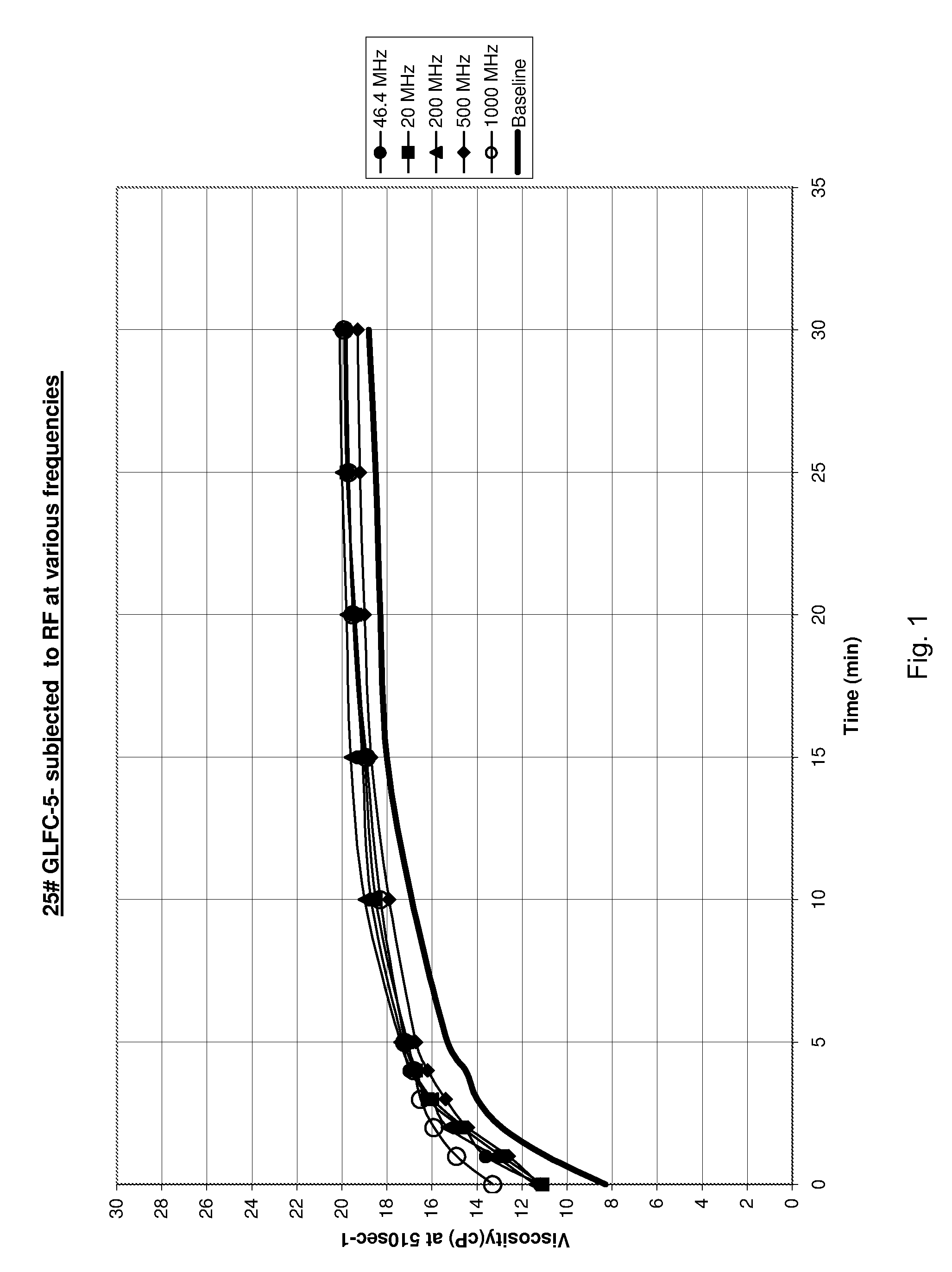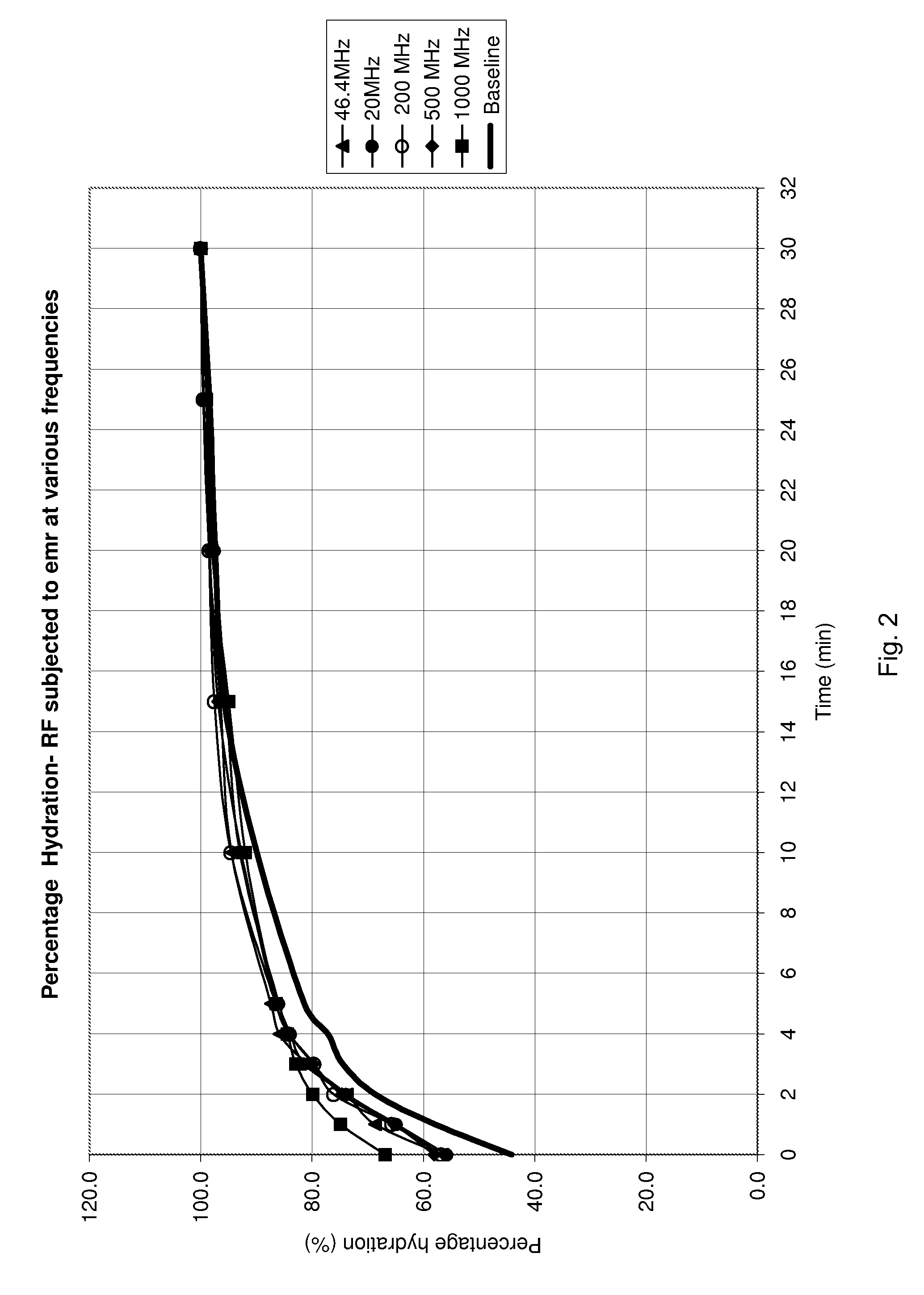Polymer hydration method
a polymer and hydration method technology, applied in the direction of fluid removal, chemistry apparatus and processes, borehole/well accessories, etc., can solve the problems of few practical and economical solutions, low efficiency, and low cost of operation, and achieve rapid hydration of mixtures or feeds, and efficient polymer hydration processes
- Summary
- Abstract
- Description
- Claims
- Application Information
AI Technical Summary
Benefits of technology
Problems solved by technology
Method used
Image
Examples
example 1
[0026]Linear gel samples were prepared by adding GLFC-5 slurry (a high yield guar GW-3 slurried in mineral oil) available from BJ Services Company of Houston, Tex., to water. The following procedure was used to evaluate the effect of exposure of each sample mixture to radio frequency on the hydration. The fluid was irradiated by radio frequency waves for 10 seconds and viscosity of the treated fluid was measured using an OFITE M900 viscometer available from OFI Testing Equipment, Inc. of Houston, Tex.
Test Procedure
[0027]For each sample, the constant speed mixer was set at 1500 rpm for 1 minute mixing. 250 ml of tap water was measured into the blender jar. 1.56 ml of GLFC-5 slurry was measured and added to the vortex in order to yield 25 ppt (pounds per thousand gallons) fluid and mixed for 1 minute. The sample mixture was quickly (i.e., within seconds) transferred into a stainless steel collection flask containing a helical 10 foot, 6 inch antenna of ½ wavelength of the frequency of...
PUM
| Property | Measurement | Unit |
|---|---|---|
| frequency | aaaaa | aaaaa |
| frequency | aaaaa | aaaaa |
| period of time | aaaaa | aaaaa |
Abstract
Description
Claims
Application Information
 Login to View More
Login to View More - R&D
- Intellectual Property
- Life Sciences
- Materials
- Tech Scout
- Unparalleled Data Quality
- Higher Quality Content
- 60% Fewer Hallucinations
Browse by: Latest US Patents, China's latest patents, Technical Efficacy Thesaurus, Application Domain, Technology Topic, Popular Technical Reports.
© 2025 PatSnap. All rights reserved.Legal|Privacy policy|Modern Slavery Act Transparency Statement|Sitemap|About US| Contact US: help@patsnap.com


